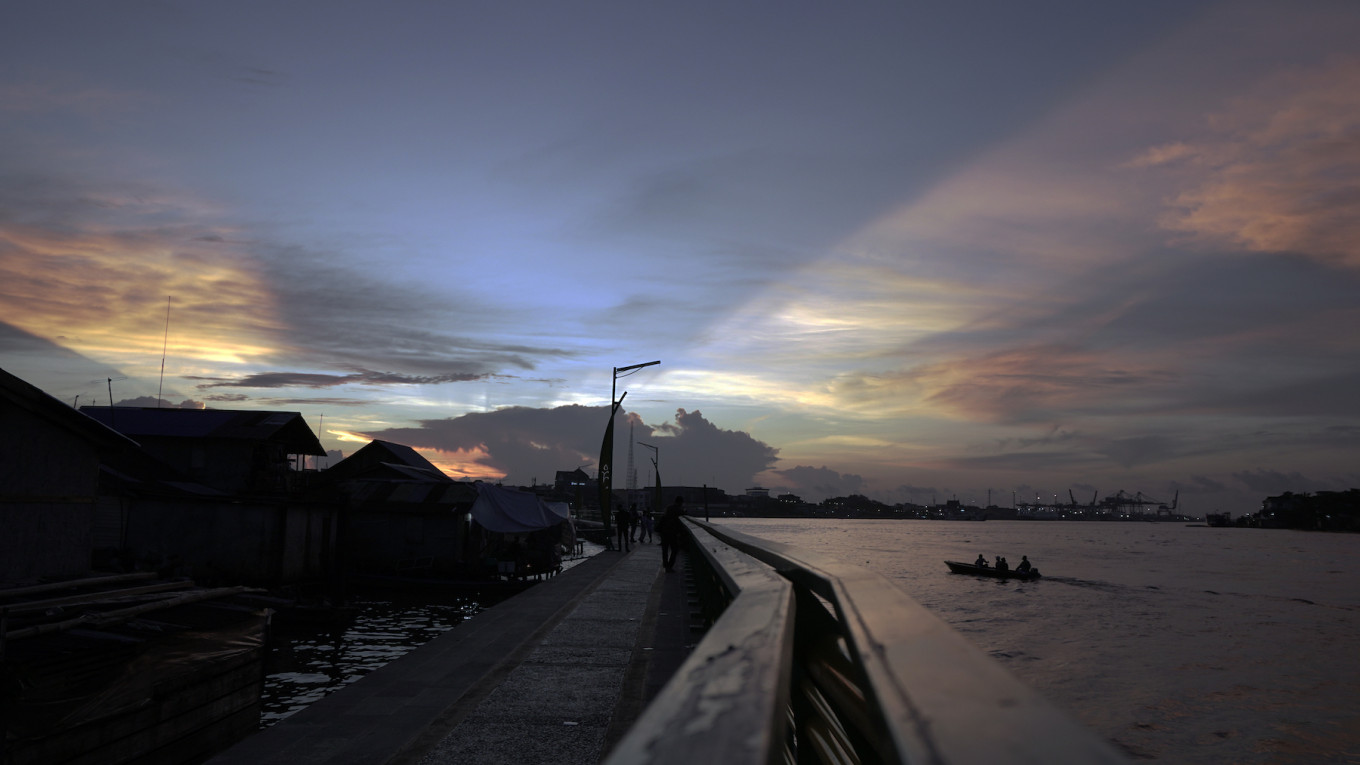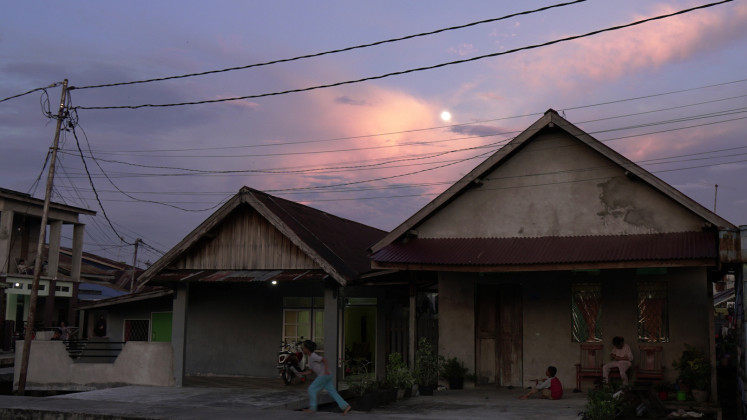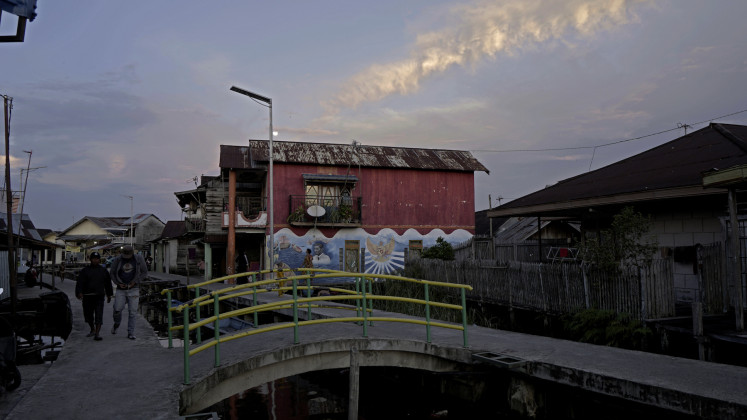Popular Reads
Top Results
Can't find what you're looking for?
View all search resultsPopular Reads
Top Results
Can't find what you're looking for?
View all search resultsBeting Village: Haven for drug users, hell for non-users
A village known for its rampant drug use and trade is also a lifelong prison for its residents
Change text size
Gift Premium Articles
to Anyone
Part 1: The village that never sleeps
While most denizens of Pontianak indulge in their nightly slumber, a village called Beting is still awake. This floating settlement on the borders of the Kapuas and Landak rivers is known as a narcotics paradise among the local residents of West Kalimantan’s provincial capital. A mix of dangdut and funkot (city funk) music rises from nearly every house from sundown to early morning. Wooden canoes ferry partygoers from all over the city who have come to join in the festivities. The village’s “Wild West” image is such that it's often referred to as the "Texas of Pontianak".
Trapped by stigma
Randy (not his real name) is in his late teens and, until recently, lived in Beting all his life. While he made his living as a canoe steersman, Randy's father and brother are both small-time drug dealers. Meanwhile, his mother sells snacks to children and customers who visit the family’s home to buy or use drugs, mostly crystal meth. Randy's mother is the only one in the family who doesn't use drugs.
While the government and the National Narcotics Agency (BNN) provide rehabilitation programs, including skills training for local residents, and have renovated the local infrastructure, the drug-centered ecosystem of village Beting continues to thrive. The BNN reports that approximately 200 out of the 3000-plus residents in the village are actively involved in drugs as users, sellers or both.
For Randy's family and other residents, drugs are not taboo. It is deeply intertwined with their daily existence and livelihood. In Beting, Randy says, a shot of heroin can cost as little as Rp 10,000, and users can be as young as junior high school-aged children.
Being from Beting is not easy. Randy and his family grapple daily with the stigmas attached to the place. Randy was bullied at school because the village is considered a poor area. Meanwhile, his brother has had no choice but to continue dealing, as his job applications were repeatedly rejected just because of his home address.
"When an employer looks at our citizen ID card and realizes that we're from Beting, they will automatically reject us. It's because our image is like criminals, see? We also have no other choice [but to sell drugs]," Randy told The Jakarta Post.
Many villagers find themselves trapped as dealers in Beting's drug-centered lifestyle, unable to find a job anywhere else (JP/Reza Darwin)Beting residents also have difficulty accessing financial credit. From motorcycle loans to business loans, they are more than likely to come home empty-handed because of their place of origin. Contrary to the treatment from non-residents, the local dealers seem almost overgenerous, though not without ulterior motives. When Randy's parents ran out of money and couldn’t pay his high school tuition, a drug-dealing neighbor offered to pay. In exchange, Randy had to work for him, picking up customers in a canoe and taking them to the neighbor.
"It's as if we are indebted [to each other]. So don't be surprised when police officers come [on a raid], the residents voluntarily become [the dealers'] saviors,” said Randy.
“The ties between us here are like a family. We protect each other because we experience the same fate. We're all alienated."
Communal protection
In 2012, Pontianak Post journalist Arief Nugroho became stuck in Beting while covering a police raid. He observed that there was a system of communal self-preservation in Beting, and the residents did not hesitate to risk their lives to protect the local narcotics trade.
At one police raid that went down at midnight, Arief followed two police officers as they searched for dealers. Breaking down the door of one floating house, they found a middle-aged man sleeping next to his wife and son. After searching the premises, the officers found nothing but a pile of money.
Suddenly, the child awoke and began shouting hysterically at Arief and the policemen to leave. As Arief prepared to leave and opened the door, someone began hitting the electricity pole outside, creating a loud clanking sound that woke up many people. The residents surrounded the house within seconds, carried out the middle-aged man as they intimidated Arief and the besieged officers by shouting and throwing stones and sticks at them.
The residents packed all routes out of the area, makeshift paths made of gertak, lengths of steel sheeting or wooden planks. Although the police had brought along soldiers as backup, standing by near the alley leading to the house, they were unarmed and had to go back to their barracks and retrieve their weapons. They returned half an hour later to evacuate Arief and the officers, although not without struggle.
Afterward, Arief vowed he would never to return to Beting.
Part 1 of a two-part series; Part 2 will be published on Feb. 3.












